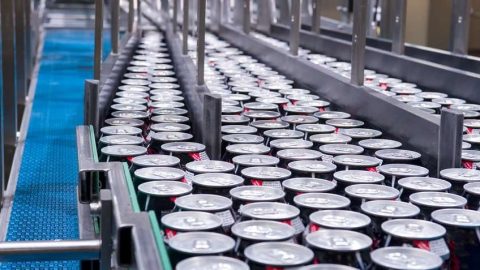
Photos at the production line of the Company
In this section, we will continue to explore other examples of the effectiveness of applying TPM at HCCB.
As another example, Mr. Nitin Joshi joined the factory in July 1996. His job is to ensure that reusable glass bottles (RGB) are properly placed when they are ready to enter the extraction line. At HCCB, when applying TPM, he learned how to set up, manage reverse osmosis setup and syrup production process. With the ability to do 3 jobs, Mr. Nitin Joshi found the job easier and more confident, he was considered as an experienced worker at HCCB.
In the WTP area, before at HCCB, almost all water treatment processes were very messy. Operators have redesigned WTP and made many improvements in the process. Thanks to that, the management could not find a drop of water scattered on the floor of the workshop. This is something that no one previously believed could happen.
Yogesh Bhavsar said: “We want to change the way things – at the factory – are improved to be typical of the best factory. That involves bringing about change in culture and instilling. a sense of ownership among employees”.
Some results when applying TPM at HCCB’s factory:
Results:
JIPM promotes safe, accurate and efficient manufacturing and maintenance activities for manufacturing plants around the globe. Since the establishment of JIPM in 1964, 2,000 factories have been awarded TPM awards. The JIPM award system assesses the results of plant operations and awards at five levels: excellence, consistency, speciality, exceptional advanced and world-class. On average, it takes about 10 years for a factory to go from the first level to the top level. JIPM TPM auditors consider every aspect of production and their contribution to the entire business.
Productivity and Quality Office